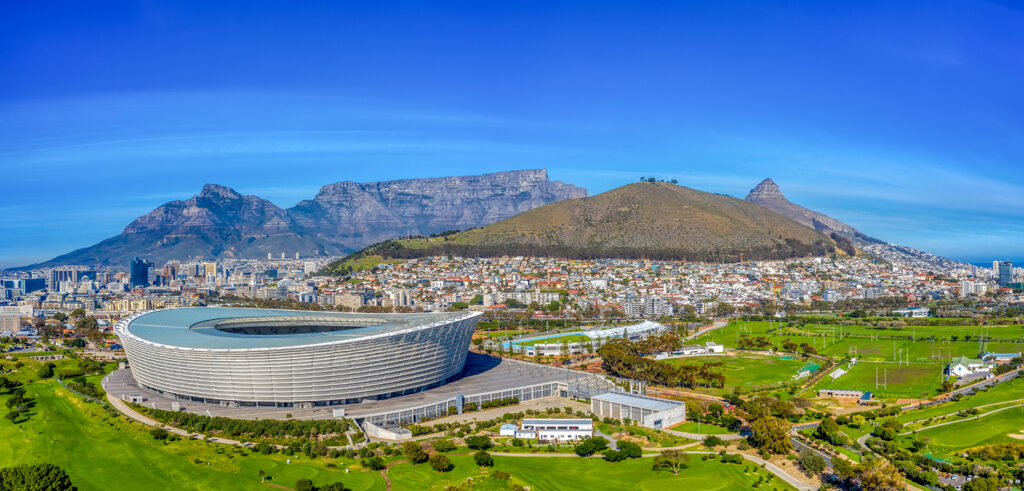He added that “growth is projected to average 1.6% between 2024 and 2026.” Analysts at Investec, Standard Chartered Bank and other financial institutions expect interest rates and inflation to start falling later this year, which could boost GDP growth.
FocusEconomics, a group of economists, predicts that the South African rand will stabilize at R18.48 per dollar by the end of 2024. A highly volatile currency is susceptible to economic shocks, which creates additional problems for the economy and the operating system of companies.
The effect of South Africa’s currency weakness pales in comparison to the state of the economy in the Southern African Development Community, where Angola’s heavy debt burden and Zimbabwe’s incompetent economic leadership pose big challenges for investors looking for alternatives, according to Charlie Robertson, head of macro strategy at investment manager FIM Partners with headquarters in Dubai.
Upcoming elections
As South Africa’s May elections approach, Tatonga Rusike, sub-Saharan Africa economist at Bank of America, stresses that leadership continuity at the Treasury to ensure continued sound fiscal policy is critical to South Africa’s investment attractiveness .
Opinion polls suggest the ruling African National Congress (ANC) party may fall short of winning an absolute majority and may have to form a coalition to stay in government.
“Election results could introduce uncertainty, making strong leadership critical to effectively addressing the country’s economic challenges,” Rusike says.
However, he adds that South Africa’s budget presentation in February “went beyond the election and rebutted populist spending proposals before the vote.”
With President Cyril Ramaphosa promising reforms to infrastructure and logistics such as electricity, railways and ports, there was renewed optimism that South Africa can improve on the weaknesses that have unnerved investors.
For example, Renel Stander, CEO of Wesgro, a tourism, trade and investment promotion agency in Cape Town and the Western Cape, touts the administration’s commitment to ensuring collaboration between the public and private sectors of the economy.
“Our investment environment is relatively favorable and we are focused on cutting red tape and rolling out the red carpet for investors. There is an openness to collaboration in the public-private ecosystem,” Stander says.
According to Bank of America’s 2024 South African fund manager survey, the preferred sectors for investment in South Africa are banking, general industrials, food manufacturing, healthcare and retail. However, telecommunications, gold mining and real estate are now considered out of favor.
While net foreign direct investment (FDI) inflows into South Africa have historically averaged just over 1% of GDP over the past decade, there have been some positive developments, including a recent call for investment in renewable energy.
“In 2023, we saw a significant increase in imports and investment in solar panels, supported by the lifting of caps on private sector power generation and a 125% tax credit on renewable energy,” said Zahabia Gupta, director of sovereign ratings at S&P Global. Ratings.
The 2024 Budget statement announced in February “includes a new incentive of a 150% tax credit for local production of electric and hydrogen vehicles” starting in March 2026, she said.
And South Africa benefits from “very good institutions like the Reserve Bank; smart, conservative banks; and good, well-run corporations,” Robertson says.
South Africa has also just introduced a new policy, the Trusted Employer Programme, which aims to expedite work permits for qualified staff, senior managers and executives from international companies investing in the country.
This was “huge for global corporations given the brain drain” as “South Africa will cut the time it takes to issue work permits to foreign executives and technicians hired by the country’s biggest companies in a bid to attract overseas investors,” says Marco Olevano, an analyst South African market.
In May’s elections, Ramaphosa will stand for a second term against main rivals, which include the leaders of the main opposition parties, the Democratic Alliance and the Economic Freedom Fighters. Former President Jacob Zuma has split with Ramaphosa’s ruling ANC party and is now working with the opposition party Umkhonto We Sizwe, which was once the military wing of the ANC.
JA van der Linde, senior Africa economist at Oxford Economics, said South Africa’s 2024 elections will bring uncertainty to the country’s macroeconomic fundamentals as investment assets underperform. He believes there could be a “temporary post-election relief rally after a long period of uncertainty” ahead of the crucial elections.
As investors took a wait-and-see approach ahead of the election, FDI inflows into South Africa fell by about half to $1.4 billion in the third quarter of 2023 from the second quarter, data from the country’s central bank showed.
That’s despite the World Bank approving a $1 billion loan in October to partly help South Africa resolve a debilitating power supply crisis that is sapping productivity and raising the cost of doing business, business leaders say.
According to FIM’s Robertson, “South Africa’s infrastructure strengths have eroded over the last 10 to 20 years, from electricity (Eskom) to transport (Transnet), while the country’s debt burden” has increased.
Some investors were spooked; although, according to Robertson, “sluggish economic growth is a major headwind” for foreign direct investors. The post-election period could provide some direction for investors who have retained faith in the current leadership despite the many challenges facing the country.


